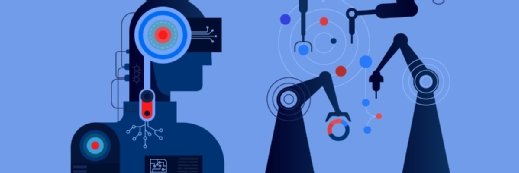
Getty Images
Analysis of Claims Data Shows 200% Spike in Alzheimer’s, Dementia
A new report finds that 37,000 commercially insured Americans aged 30 to 64 were diagnosed with Alzheimer’s disease in 2017, a 131 percent increase from 2013.
The number of commercially insured Americans age 30 to 64 diagnosed with early-onset dementia or Alzheimer’s disease increased by 200 percent from 2013 to 2017, according to an assessment of claims data from Blue Cross Blue Shield Association (BCBSA).
The report, Early-Onset Dementia and Alzheimer’s Rates Grow for Younger Americans, was based on claims data for more than 48 million commercially insured members of BCBSA. The study uncovered that more than 37,000 commercially insured Americans between 30 and 64 were diagnosed in 2017, a 131 percent increase since 2013.
Additionally, the number of individuals diagnosed with these conditions increased 373 percent among 30- to 44year-olds, 311 percent among 45- to 54-year-olds, and 143 percent among 55- to 64-year-olds from 2013 to 2017.
“Research has shown that Alzheimer’s disease starts in the brain years before clinical symptoms become apparent,” said John Dwyer, president of the Global Alzheimer’s Platform Foundation. “This report shows that people as young as 30 have outward symptoms. We need more research to stop Alzheimer’s disease progression in people of all ages.”
Many individuals who carry mutations in genes known to cause early onset Alzheimer’s don’t show signs of the condition until old age although the disease starts in the brain years before.
Back in November, researchers at Massachusetts General Hospital (MGH) studied one patient who did not develop cognitive impairment until her seventies, nearly three decades after the usual age of onset.
But the patient’s relatives showed signs of dementia in their forties even though they all shared the same E280A genetic mutation. In an analysis of family members, six percent had one copy of the APOE3 mutation, including four E280A carriers who showed early onset symptoms at 45.
Researchers uncovered that carrying two copies of the APOE3 variant may push back the clinical onset of Alzheimer’s disease by limiting tau pathology and neurodegeneration.
The recent increase in Alzheimer’s diagnoses among younger generations may lead to economic consequence and mental stress for care providers. Close to 16 million individuals provided over 18 billion hours of unpaid care to someone with the disease in America, totaling $221 billion, the BCBSA report highlighted.
“The increase in early-onset dementia and Alzheimer’s diagnoses among a generation who typically wouldn’t expect to encounter these conditions for several decades is concerning, especially since there is no cure for Alzheimer’s disease,” Vincent Nelson, MD, vice president of medical affairs for BCBSA said in the report.
“Further education and research is needed to learn more about early-onset dementia and Alzheimer’s, how to treat these conditions and what can be done to better prevent diagnoses,” he concluded.
The average age of a person living with either form of dementia is 49, and women make up 58 percent of those diagnosed. The rates of diagnosis were more prevalent in the East, the South, and parts of the Midwest, while western states showed lower rates.
As Alzheimer’s takes the spot as the sixth leading cause of death in the US, more organizations are looking to tackle the challenges associated with the disease and potentially relieve symptoms.
In January of this year, Maximum Life Foundation (MaxLife), a non-profit organization which tackles aging research, provided a free gene therapy for ten patients with Alzheimer’s disease intended to improve Alzheimer’s symptoms.
The gene therapy looks to treat the cellular degeneration caused by aging and is offered by Integrated Health Systems, a gene therapy facilitator used to treat various other adult aging-related diseases with no known cure.
In August 2018, a patient received a low dose of the therapy and experienced no side effects, but no apparent progression either.
The gene therapy treatment is ongoing and researchers will continue to look for positive outcomes.
“This technology could halt many of the big age-associated killers in the industrialized countries,” said David Kekich, MaxLife’s CEO. “Compassionate care helps patients with no other option to get access to experimental therapies that may benefit both themselves and society as a whole.”





